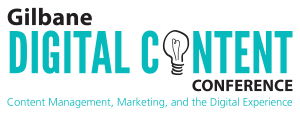Bots vs apps, conversational interfaces, AI — lots of hype, and lots of money. If all the coverage of these and how they relate have left you scratching your head our first three articles below will get you grounded in reality.
The first, a longish but enjoyable post by Dan Grover is my favorite. He uses the sneaky trick of measuring how many screen taps chat interfaces can take compared to app interfaces to sort of measure physical, mental effort, and time. As a product manager at WeChat Grover has a certain cred.
Bots won’t replace apps. Better apps will replace apps
The thesis, then, is that users will engage more frequently, deeply, and efficiently with third-party services if they’re presented in a conversational UI instead of a separate native app. … messenger apps’ apparent success in fulfilling such a surprising array of tasks does not owe to the triumph of “conversational UI.” What they’ve achieved can be much more instructively framed as an adept exploitation of Silicon Valley phone OS makers’ growing failure to fully serve users’ needs, … Many of the platform-like aspects they’ve taken on to plaster over gaps in the OS actually have little to do with the core chat functionality. Not only is “conversational UI” a red herring, but as we look more closely, we’ll even see places where conversational UI has breached its limits and broken down. Read More
Chat bots, conversation and AI as an interface
Chat bots tap into two very current preoccupations. On one hand, the hope that they can actually work is a reflection of the ongoing explosion of AI, and on the other, they offer a way to reach users without having to get them to install an app.
Benedict Evans explores both, and asks many questions about how they relate to which “runtime”. Read more
When do bots beat apps? When context and convenience matter most
Investor Peter Rojas makes similar points and reminds us in case we forgot…
Facebook isn’t just wagering that the ease of interacting via a conversational interface will drive uptake of chatbots amongst its 800 million users. Ultimately they’re doing this because they believe that the convenience of chatbots will get people to live inside Messenger in the same way that WeChat users live inside that messaging app. It’s their way of making an end-run around both iOS and Android as app platforms by bringing all those services within Messenger as chatbots — and thus onto a platform which Facebook controls. Read More
Google search engine baffles public, Ofcom study shows
The Financial Times chose to highlight the gem below, no doubt because of the increased regulatory attention, but the free just-published, Adults’ media use and attitudes Report 2016, has lots of other interesting findings.
In Ofcom’s research, adults who use search engines were shown a picture of the results returned by Google for an online search for “walking boots”. The first three results at the top of the list were distinguished by a small orange box with the word “Ad” written in it. … However, in spite of the labelling, 51 per cent of respondents were not aware that these results were adverts or sponsored links.
Imagine the results from some other other countries. Read More
Your media business will not be saved
The Verge’s Joshua Topolsky tells colleagues and competitors not to fool themselves with individual silver bullets. We’ll have to stay-tuned to see what he is working on.
Video will not save your media business. Nor will bots, newsletters, a “morning briefing” app, a “lean back” iPad experience, Slack integration, a Snapchat channel, or a great partnership with Twitter. … Compelling voices and stories, real and raw talent, new ideas that actually serve or delight an audience, brands that have meaning and ballast; these are things that matter in the next age of media. Thinking of your platform as an actual platform, not a delivery method. Knowing you’re more than just your words. Thinking of your business as a product and storytelling business, not a headline and body-copy business. Thinking of your audience as finite and building a sustainable business model around that audience — that’s going to matter. Thinking about your 10 year plan and not a billion dollar valuation — that’s going to matter. Read More
With new roadblocks for digital news sites, what happens next?
Newsonomics’ Ken Doctor, looking at the current recalibration, points out…
The Digital Dozen — those national/global companies I’ve identified, like The New York Times, The Wall Street Journal, The Washington Post, Bloomberg, AP, Reuters, The Guardian, Axel Springer, the BBC, and more — are most mindful and respecting of that heritage and mission, even as they struggle mightily. They, too, are testing more video, but they try not to let the new overwhelm their essential reasons for being. Read More
Making Medium more powerful for publishers
Aggressive…
new branding tools that will allow publications to customize color, layout, and navigation. … making it easier to migrate existing blogs and websites to Medium … two new ways that publishers can opt in to earn revenue on Medium … soon launch compatibility support for Facebook Instant Articles and Google Accelerated Mobile Pages (AMP) … brought collections to the web. Read More
The open web is not going away
Hopefully not! Zack Rosen points out the giant discrepancy in the funding of walled gardens vs open web, but he only gets to “should not” instead of “is not”. If you are an optimist you’ll be happy to know that there was a similar scenario in the 80s where giant telecoms tried to force a walled garden on the world in the form of the ODA (Office Document Architecture) standard, but lost the war to the measly-funded open information standard SGML (parent of HTML and XML). Another similarity: some of the large computer companies at the time hedged their bets by supporting both sides to some degree, much like Google, Apple, Facebook do today. Read More
Main conference: November 29 – 30 2016 ● Workshops: December 1 ● Fairmont Copley Plaza, Boston, MA
Short takes
It’s Mr. MR to you… The Untold Story of Magic Leap, the World’s Most Secretive Startup via Wired
Understand the Blockchain in Two Minutes Well, slightly over 2, but this really pretty good. via Institute for the Future
The web is Doom but there is reason for optimism. via mobiForge
Not a short term problem but, hmmm… Facebook Struggles to Stop Decline in ‘Original’ Sharing via The Information
Are MarTech tools underperforming? Digital Marketing Technology Survey Results via Real Story Group
CMS, etc., corner
Details and puns but No Joke: Sitecore is (finally) acquired (sort of) via Digital Clarity Group
Adding to their extensive collection of CMSs OpenText acquires HP customer experience content management for $170 million via TechCrunch
New, and free, Research: From Web Publishing to Experience Management in Higher Education via Digital Clarity Group
CrownPeak merges with ActiveStandards and raises funding via Real Story Group
Digital Asset Management Round-up, April 2016 via Digital Clarity Group
About
The Gilbane Advisor curates content for our conference community of content, computing, and digital experience professionals throughout the year. Subscribe to our email newsletter, or our feed.
The Gilbane Digital Content Conference – Content Management, Marketing, and Digital Experience helps marketers, IT, and business managers integrate content strategies and technologies to produce superior digital experiences for customers, employees, and partners.





















